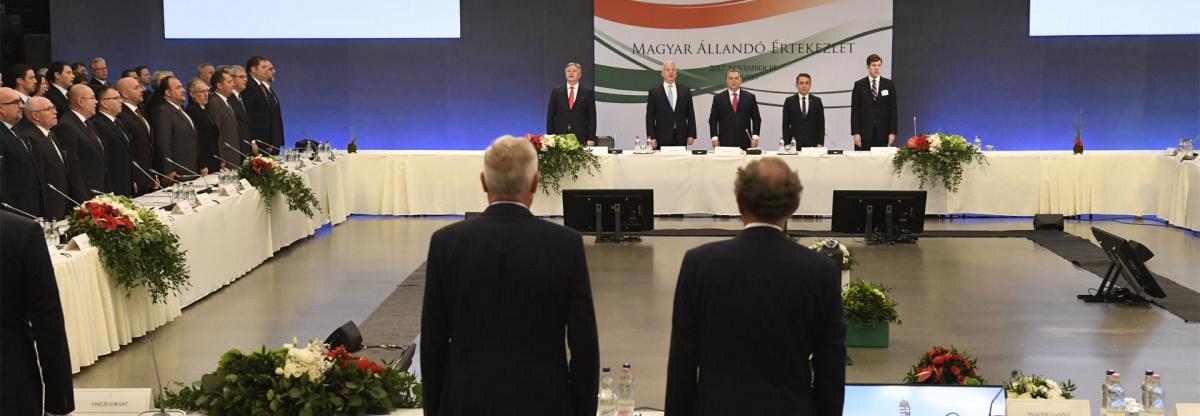
The Hungarian Standing Conference (MÁÉRT — a forum for regular consultation between the Hungarian Government, the Hungarian parliamentary parties and and the organisations of ethnic Hungarians living abroad) held its plenary session on 10 November, where the President of the Party of the Hungarian Community (SMK-MKP) also addressed the conference. József Menyhárt, when outlining his analysis of the situation, referred to the results of the regional elections, the policy of the Slovak coalition government, and the tangible results of Hungary’s aid policy.
The President of the SMK-MKP said in his speech that the Hungarian community in Slovakia is facing hectic times. The Slovak government took office after the parliamentary elections held in 2016, of which the Most—Híd party (Slovakian-Hungarian mixed party) is a member. According to József Menyhárt, the only common denominator of the coalition of the SMER—SD (Direction – Social Democracy), the SNS (Slovak National Party) and the Most—Híd is the economic interest; it holds the coalition together, and it is evident to voters as well.
“Looking at the results of the November regional elections, it can be said that the SMK-MKP is still a strong party at regional level with deep roots and credible people. We will have a total of 33 representatives in the regional councils in the coming five years, since the members of regional councils will hold mandates for a five-year period as a result of the amendment. The reason for this is that parliamentary elections will be held simultaneously with regional elections five years from now, which will confront us with a major challenge. Since participation in regional elections has traditionally been low so far, Hungarian candidates could be over-represented thanks to their effective voter mobilisation. We can no longer take this advantage; we have to prepare for the new situation,” said József Menyhárt.
“The results of the regional elections have changed power relations in many regions. Each party in government has been significantly weakened, and new regional governors were elected in several regions, including Trnava region which is of primary importance for us. It may make an impact on the country's politics, as negotiations have been opened with parliamentary opposition parties at regional level.”- added Menyhárt.
As regards the Hungarian state aid policy, the President of the SMK-MKP announced two programmes. One of the programmes is the Nursery School Development Programme, under which 58 Hungarian-language kindergartens operated by local authorities were granted development aid. Due the second phase of the programme, 95 such kindergartens will be renovated, and 11 new kindergartens will be built. As the President of the SMK-MKP said, the Hungarian-language education is of crucial importance in order to safeguard the (ethnic) Hungarian community in Slovakia in the long term.
The programme will continue in the future thanks to the support of the Hungarian state. For the first time this year, Slovakia will also receive funds for economic stimulus, which have been previously available in Vojvodina (Serbia) and Ukraine. The programme is going ahead in Slovakia pursuant to the economic plan named after Gábor Baross, which is basically the integrated economic development plan of South Slovakia and is allocating funding to actual needs. The leader of the SMK-MKP was pleased to see that the demands from small and medium enterprises on funding had been substantial; many applications were received from Slovak regions inhabited by ethnic Hungarians.
(www.korkep.sk, 10 Nov 2017)